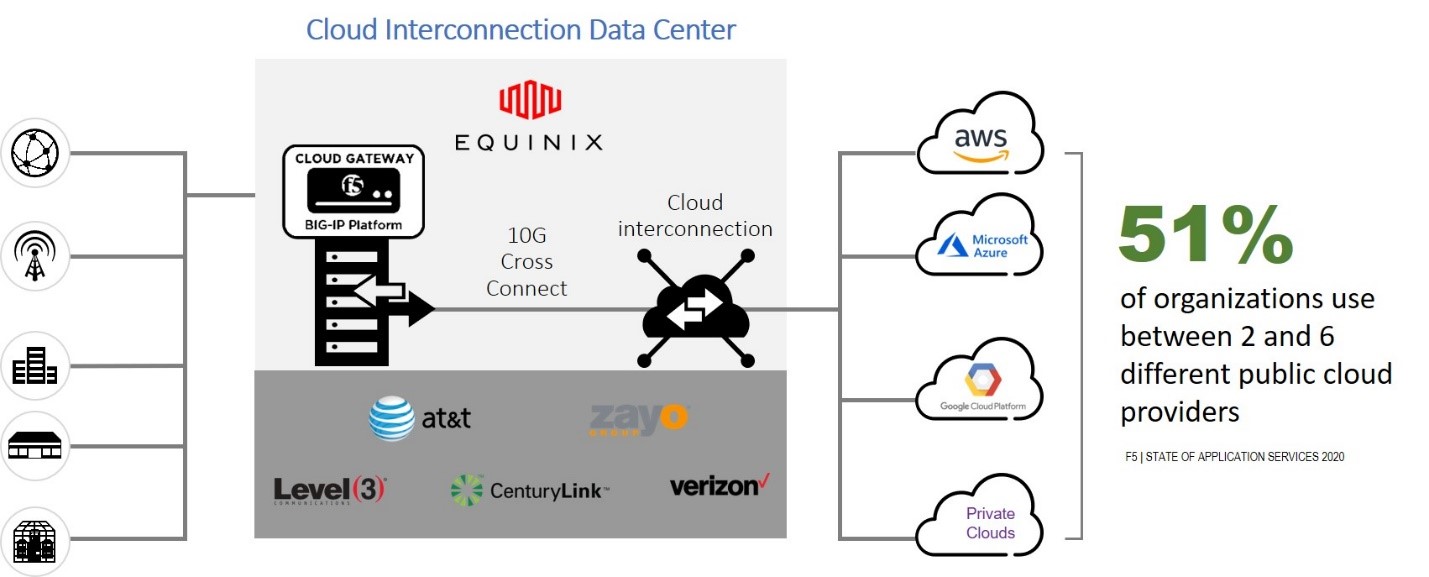Improving Business Outcomes and Application Experiences with a Cloud Gateway in Equinix
Based on our research, you are almost certainly in the 87% of organizations that operate applications across multiple cloud providers. Of that majority, you're also most likely to employ between two and six different public cloud providers. More than half (51%) of organizations do.
How those organizations choose a public cloud provider in which to deploy an application varies, with the most common strategy being based solely on the application itself. Variations include factoring in the type of user―consumer, partner, employee―as well as the type of application, e.g. cloud-native, mobile, or legacy.
This leaves organizations operating applications in a highly distributed model. Some apps are on-premises, others in AWS, still others in Azure and GCP. Operation and governance of those cloud properties, however, is increasingly centralized.
To wit, RightScale research found that 69% of organizations have adopted a centralized cloud team model, with the main responsibility of these centralized teams being to optimize cloud costs (68%), deciding which applications should be deployed in which cloud (62%), and last but not least, setting policies for cloud use (59%).
Part of the optimization equation requires a look at what “deploying an application in the public cloud” really means. Because it's not just the applications that are distributed across multiple cloud properties. Delivering and securing those applications is the task of application services, which turn applications into experiences. Experiences that, based on consumer research, have a significant impact on everything from brand reputation to customer churn to real business impacts. Those application services are also distributed along with the applications they deliver and secure, increasing complexity.
The consequences of distributing applications and their supporting services across multiple properties is far reaching. From network capacity to inconsistent security policies, from variable performance to a lack of full traffic visibility, multi-cloud realities introduce challenges for every role within the organization.
The solution many are adopting in response is to employ private interconnection to multiple clouds, through Equinix. As the peering point for every major public cloud, Equinix offers lightning fast, ultra-low latency connections to the public clouds already used by most organizations via their virtual interconnection solution, Equinix Cloud Exchange Fabric (ECXF).
Equinix solves issues with connectivity, latency, and capacity at the network layers with its cloud edge locations and networking magic. It solves for challenges with consistency of security policy and full visibility of traffic flows by also acting as a control point between users, locations, clouds and data in which organizations can deploy and enjoy the benefits and capabilities of a cloud gateway.
The Cloud Gateway
A cloud gateway offers a single, scalable location at which application requests and traffic that comprise an “application experience” can be intercepted, inspected, and directed to its intended destination, all from a single, interconnected control point.
In the role of a cloud gateway, the F5 BIG-IP offers the application services organizations need to provide consistent security/access policies, employ application protections, and provide full visibility into traffic flows and application usage. It can reduce cloud costs by preventing undesirable traffic (bad actors, bots, attacks) from reaching applications hosted in a public cloud provider. It can enhance security by taking advantage of a Equinix SmartKeyTM, a centralized key management solution from to secure traffic, thus eliminating the risky practice of storing encryption keys in a public cloud.
There are many benefits to employing a cloud gateway in the Equinix environment; too many to explore in one post. That's why we're going to dive into more detail in subsequent posts, each focusing on a different capability―and the benefits―of a cloud gateway.
If you can’t wait and want to dive in now, here are some resources you can check out to learn more:
Stay safe and stay tuned for more!


